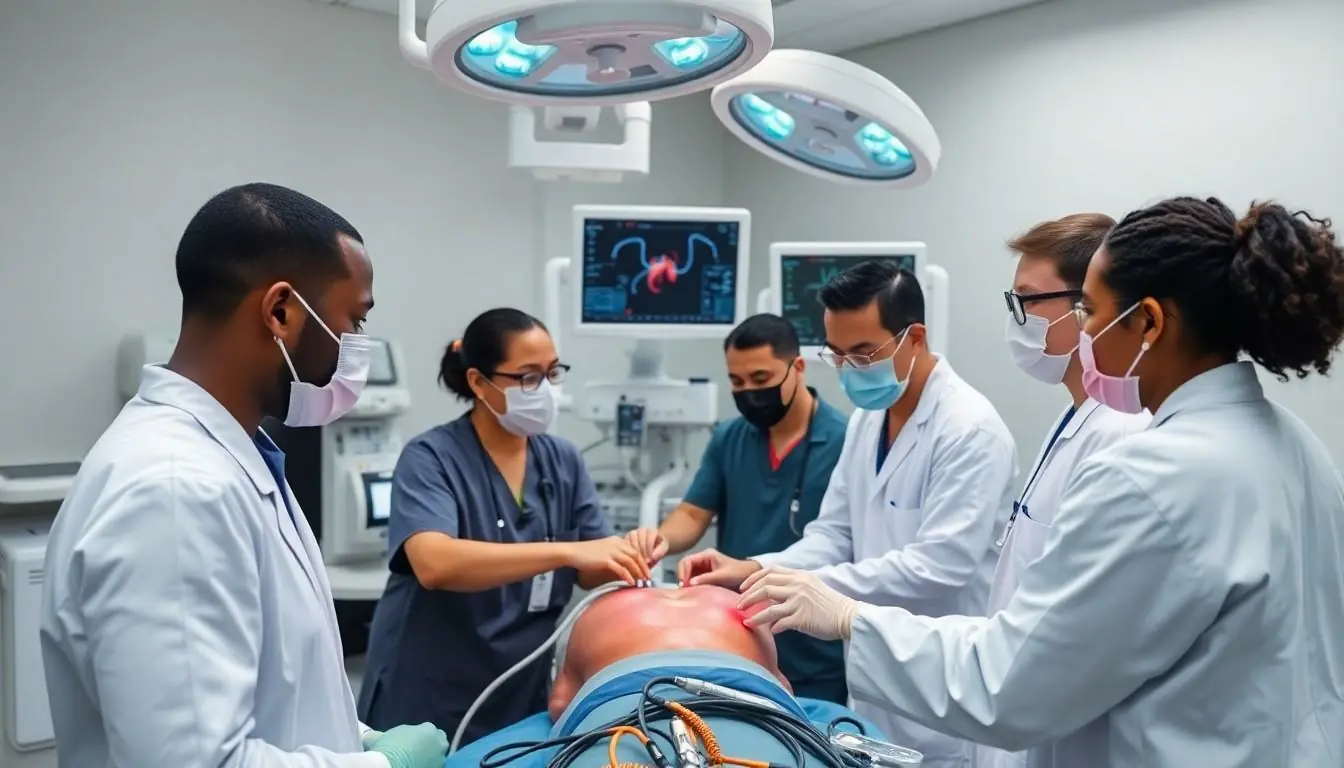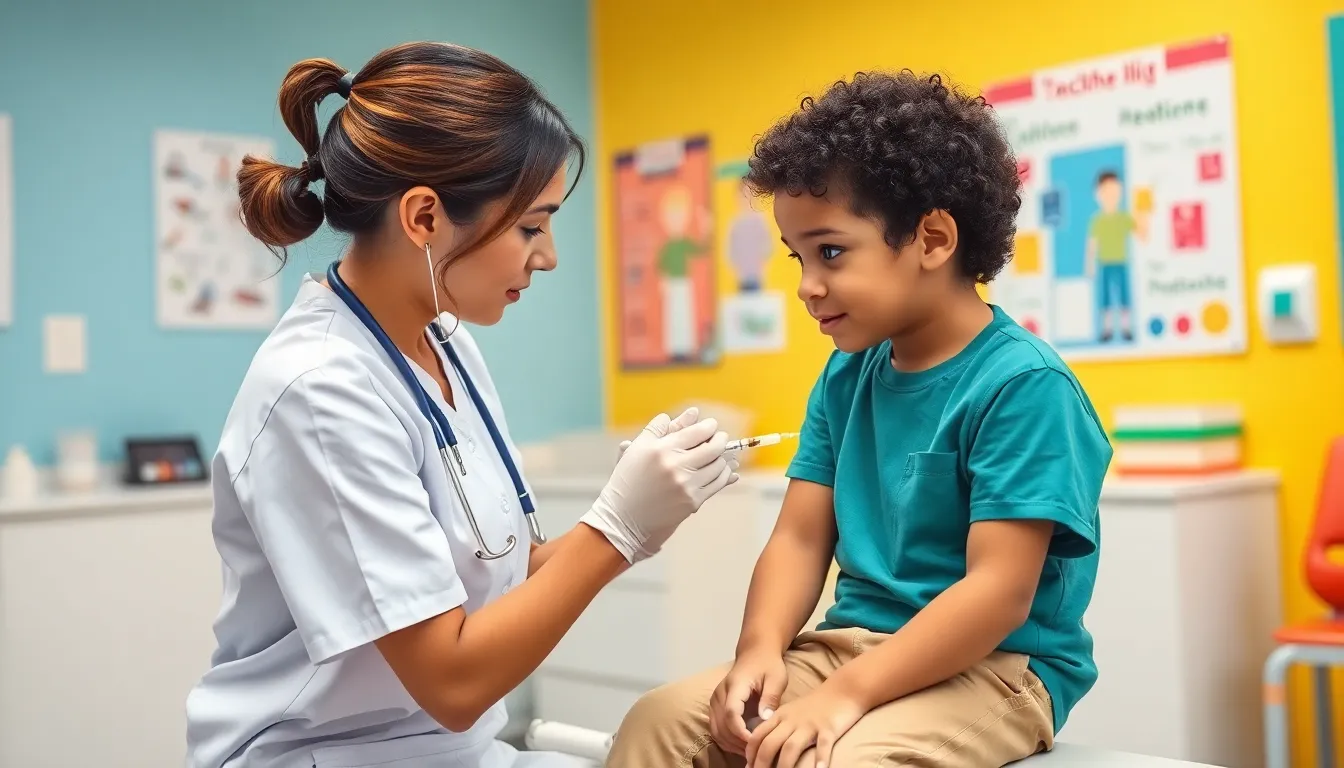Diving into the world of interventional cardiology isn’t a sprint – it’s more like running a medical marathon. For aspiring heart specialists looking to master the art of minimally invasive cardiac procedures, understanding the timeline of this advanced fellowship is crucial.
The path to becoming an interventional cardiologist builds upon years of medical training, and it’s not for the faint of heart (pun intended). While some might think it’s just another quick medical program, this specialized fellowship represents the final leg of an intensive journey that transforms skilled cardiologists into highly trained interventional specialists who can perform complex cardiac procedures with precision and confidence.
Table of Contents
ToggleUnderstanding Interventional Cardiology Fellowship Programs
Interventional cardiology fellowship programs provide specialized training in advanced cardiac procedures. These programs combine structured learning with hands-on clinical experience to develop expertise in cardiac catheterization procedures.
Prerequisites and Application Requirements
Candidates for interventional cardiology fellowships must complete three years of internal medicine residency plus three years of general cardiology fellowship training. The application process requires:
- Board certification in cardiovascular disease
- Valid medical license in the fellowship state
- Letters of recommendation from cardiology program directors
- Research experience in cardiovascular medicine
- USMLE Step scores above 230
- Personal statement highlighting interest in interventional procedures
- Clinical experience with cardiac catheterization procedures
Fellowship Length and Structure
The interventional cardiology fellowship spans 12 months of intensive training at accredited medical centers. The program structure includes:
- 9 months of cardiac catheterization laboratory rotations
- 3 months of specialized rotations in:
- Peripheral vascular interventions
- Structural heart procedures
- Advanced imaging techniques
- Weekly conferences covering:
- Case presentations
- Research updates
- Quality improvement initiatives
- Clinical research requirements
- Monthly performance evaluations
- Progressive responsibility in complex procedures
| Activity | Hours per Week |
|---|---|
| Catheterization Lab | 40-50 |
| Clinics | 8-10 |
| Research | 5-8 |
| Conferences | 4-6 |
Core Training Components
Interventional cardiology fellowship programs focus on comprehensive training elements that build expertise in advanced cardiac procedures. Each component integrates clinical practice technical proficiency research activities.
Procedural Skills Development
Fellows master coronary interventions through progressive complexity levels in the cardiac catheterization laboratory. Training includes performing 250 coronary interventions as primary operator diagnostic catheterizations coronary angioplasties stent placements. Fellows gain competency in specialized techniques such as:
- Rotational atherectomy for calcified lesions
- Chronic total occlusion interventions
- Bifurcation stenting procedures
- Complex high-risk interventional procedures
- Intravascular imaging guidance techniques
Research Requirements
Fellows participate in clinical research projects throughout their training year. Research activities encompass:
- Publishing 1-2 peer-reviewed articles
- Presenting findings at national cardiology conferences
- Contributing to ongoing clinical trials
- Analyzing patient outcomes data
- Collaborating on multi-center research initiatives
Clinical Rotations
- 9 months in cardiac catheterization laboratory
- 6 weeks in structural heart interventions
- 6 weeks in peripheral vascular procedures
- 4 weeks in advanced cardiac imaging
- 2 weeks in electrophysiology lab
| Rotation Type | Duration | Procedures/Month |
|---|---|---|
| Cath Lab | 9 months | 20-25 |
| Structural | 6 weeks | 8-10 |
| Peripheral | 6 weeks | 10-12 |
| Imaging | 4 weeks | 15-20 |
Year-by-Year Breakdown of Fellowship Training
Interventional cardiology fellowship programs follow a structured progression across multiple years. Each year builds upon previous knowledge while introducing increasingly complex procedures and responsibilities.
First Year Focus Areas
Fellows dedicate their initial year to mastering fundamental catheterization lab procedures. The training includes:
- Performing 150 diagnostic cardiac catheterizations
- Completing 75 percutaneous coronary interventions
- Learning vascular access techniques through radial and femoral approaches
- Participating in 50 emergency cardiac procedures
- Managing pre and post-procedure patient care
- Interpreting coronary angiograms and hemodynamic data
- Attending weekly catheterization conferences
- Participating in quality improvement initiatives
Advanced Training in Second Year
The second year emphasizes complex interventional techniques and specialized procedures:
- Leading 100 advanced coronary interventions
- Performing structural heart procedures including TAVR and MitraClip
- Managing high-risk cases with mechanical circulatory support
- Conducting peripheral vascular interventions
- Operating advanced intravascular imaging systems
- Participating in research projects and clinical trials
- Teaching junior fellows and residents
- Developing independent clinical decision-making skills
Each training component incorporates hands-on experience with direct faculty supervision through graduated responsibility levels.
Additional Training Opportunities
Interventional cardiology fellows gain access to specialized training paths that enhance their expertise beyond the core fellowship requirements.
Specialized Certifications
The American Board of Internal Medicine offers advanced certification in interventional cardiology through a rigorous examination process. Fellows complete specialized training in structural heart interventions at designated centers of excellence. Advanced certifications include Endovascular Medicine (ABVM) Complex High-Risk Interventional Procedures (CHIP) training Chronic Total Occlusion (CTO) procedures. The Society for Cardiovascular Angiography and Interventions provides additional certification programs in areas like:
- Peripheral vascular interventions
- Structural heart disease
- Advanced hemodynamic support
- Trans-radial interventions
- Intravascular imaging
Research Extensions
Fellows participate in dedicated research fellowships lasting 12-24 months at major academic medical centers. These programs focus on clinical trials cardiovascular device development translational research. Research opportunities include:
- NIH-funded cardiovascular research programs
- Industry-sponsored device trials
- Outcomes research initiatives
- Basic science laboratory projects
- Population health studies
- American College of Cardiology
- American Heart Association
- Society for Cardiovascular Angiography and Interventions
- Transcatheter Cardiovascular Therapeutics
Career Prospects After Fellowship Completion
Interventional cardiologists command median annual salaries of $550,000 with experienced specialists earning up to $750,000 in private practice settings.
Employment opportunities for interventional cardiologists exist across multiple settings:
- Academic medical centers focusing on research innovation advanced procedures
- Private cardiology groups providing comprehensive cardiac care
- Large hospital systems offering 24/7 cardiac catheterization services
- Outpatient cardiovascular centers specializing in elective procedures
- Veterans Affairs medical facilities serving veteran populations
Career advancement paths include:
- Director of cardiac catheterization laboratories
- Chief of interventional cardiology divisions
- Program director for fellowship training
- Principal investigator for clinical trials
- Consultant for medical device companies
| Practice Setting | Annual Salary Range |
|---|---|
| Academic Centers | $400,000 – $600,000 |
| Private Practice | $550,000 – $750,000 |
| Hospital Systems | $475,000 – $650,000 |
| VA Medical Centers | $350,000 – $450,000 |
Geographic location impacts salary potential with metropolitan areas offering higher compensation. Urban centers provide increased access to complex cases specialized procedures. Rural locations offer competitive salaries to attract qualified specialists.
- Aging population demographics
- Rising prevalence of cardiovascular disease
- Expanding treatment options
- Growing demand for minimally invasive procedures
- Technological advancements in interventional techniques
Conclusion
Becoming an interventional cardiologist requires exceptional dedication through a comprehensive training journey. The one-year fellowship program builds upon years of prior medical education and provides intensive hands-on experience in advanced cardiac procedures.
The rigorous training pathway leads to rewarding career opportunities with competitive salaries and diverse practice settings. With ongoing technological advances and an increasing need for cardiac care specialists the field continues to evolve and grow. Those who complete this challenging path emerge well-prepared to deliver life-saving cardiac interventions and shape the future of cardiovascular medicine.





